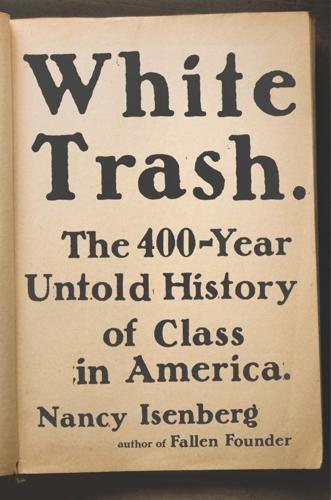
White Trash: The 400-Year Untold History of Class in America
by
Nancy Isenberg
Published 20 Jun 2016
Though by the 1830s he would come to be known as a bear hunter and “Lion of the West,” David Crockett was a militia scout and lieutenant, justice of the peace, town commissioner, state representative, and finally a U.S. congressman. He was first elected to the House of Representatives in 1827. What makes the historic David Crockett interesting is that he was self-taught, lived off the land, and (most notably for us) became an ardent defender of squatters’ rights—for he had been a squatter himself. As a politician he took up the cause of the landless poor.32 Crockett was born in the “state of Franklin,” a state that was not legally a state. It had declared its independence from North Carolina in 1784 and remained unrecognized. Franklin was later incorporated into Tennessee and became a battleground as speculators and squatters scrambled to control the most arable tracts.
…
When he sought the presidency in 1824 and 1828, the Seminole War remained front and center.49 Few of Jackson’s critics were buying the chivalrous portrait his defenders presented. He was not protecting women and children so much as opening up Florida lands to squatters and roughs and other uncivilized whites. But unlike Crockett, Jackson was never a champion of squatters’ rights. When ordered to remove them, he used the military to do the job. Yet at the same time he favored white possession of the land in the same way squatters had always defended their claims: those who cleared and improved the land were worthy occupants. Jackson’s thinking shaped his Indian removal policy as president.
…
Like certain masters of gangsta rap in the twenty-first century, crackers had to make up for their lowly status by dressing themselves up in a boisterous verbal garb. In the Crockett manner, lying and boasting made up for the absence of class pedigree. This, too, was Andrew Jackson. He used duels, feuds, and oaths to rise in the political pecking order in the young state of Tennessee.67 While Jackson had little interest in squatters’ rights, his party did shift the debate in their favor. Democrats supported preemption rights, which made it easier and cheaper for those lacking capital to purchase land. Preemption granted squatters the right to settle, to improve, and then to purchase the land they occupied at a “minimum price.” The debate over preemption cast the squatter in a more favorable light.
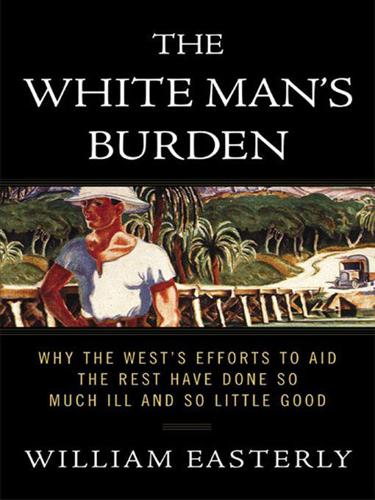
The White Man's Burden: Why the West's Efforts to Aid the Rest Have Done So Much Ill and So Little Good
by
William Easterly
Published 1 Mar 2006
The federal government after 1790 tried to sort out the land chaos for the whites, if not for the natives. More than twenty acts of Congress addressed the land issue between 1799 and 1830, along with numerous state-by-state legislative acts. The tug of war between squatters’ rights and more formal legal titling continued. Lax enforcement made for inconsistency on the ground. A “preemption” right was finally recognized by Congress in 1830 (and made permanent in 1841), essentially legalizing squatters’ rights.39 The Homestead Act during the Civil War formalized acquiring legal title by settlement on federally owned land. Michael Cresap died in 1775 fighting under Washington in the Revolutionary War, leaving his heirs to litigate about land titles.
…
Michael’s method, George derided, was claiming “every good bottom upon the river; building a cabbin thereon to keep off others; & then selling them, and going on to possess other lands in the same manner.” Other title methods on the American frontier made Michael’s methods look like a formal court hearing. Another technique was to slash trees along the boundary line of the land you were claiming. Squatters’ right to land is an old tradition. Congress later willy-nilly appropriated some of the same frontier land for Revolutionary War veterans. Many pieces of land on the frontier thus came to have multiple claimants. The only thing the whites, who squabbled about one another’s land rights, could agree upon was that the real owners of the land—the Native Americans—had no rights at all.

Pirate Cinema
by
Cory Doctorow
Published 2 Oct 2012
He grunted as he twisted the screwdriver and I heard the screw he was working on rasp and begin to turn. "What's it look like?" "It looks," I said, carefully, "like you're claiming that you now own this pub." He finished the screw he was working on and went to work on the next one. "That's about right," he said. "Squatter's rights." "You said that before. What's a squatter's right?" "Well, you know. When buildings are left derelict, like this one, the landlord gone and no one taking care of it, it's a, you know, a blight on the neighborhood. Attracts drug users, prostitutes, gangs. Becomes an eyesore. After World War Two there were loads of these buildings, just sitting there vacant, dragging everything around them down.
…
All boarded up, no one's been in for months. Looks cozy, too. Want to come have a look at it with me?" "You're going to break in?" "No," he said. "That's illegal. Going to walk in. Front door's off its hinges." He tsked. "Vandals. What is this world coming to?" "It's not illegal to walk in?" "Squatter's rights, mate," he said. "I'm going to occupy that derelict structure and beautify it, thus elevating the general timbre of the neighborhood. I'm a force for social good." "But will you get arrested?' "It's not illegal," he said. "Don't worry, mate. You don't have to come, if you don't want to.
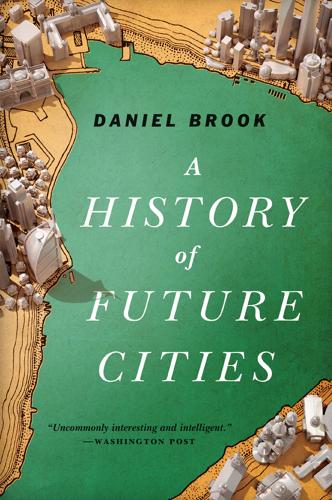
A History of Future Cities
by
Daniel Brook
Published 18 Feb 2013
The bridge, essentially an offshore connector road, is the traffic circulation equivalent of a heart bypass, where an existing artery is so clogged that an alternate route is added. The efficient solution—building an onshore expressway—was off the table because it would involve evictions, an impossibility in a country whose judicial system assiduously protects squatters’ rights. The “slumdogs” are someone’s constituents, called “vote banks,” and decades-long lawsuits are generally necessary to evict them. Cognizant that their power comes from the ballot box, Mumbai’s slum dwellers have near-perfect voter turnout while the city’s rich all but boycott elections and rely on their wealth to protect them.
…
., Art Deco architecture of, 212, 213 Michelangelo, 36 microscope, 19 Microsoft, 361, 363 Middle East: Chinese exploration of, 56 hijackings in, 355 political instability in, 262, 356, 362 see also Arab world Mikhail Nikolayevich, Grand Duke of Russia, 139, 155 Mindspace (Mumbai), 338 Mission Impossible III, 322 modernism, 160–61, 162, 163, 168, 177, 195, 229, 234, 255, 256 modernity: Chinese Communist Party’s presentation of, 322, 323 contemporary Dubai’s representation of, 353, 385 contemporary Mumbai’s representation of, 347, 349 critics of, 219–20 ingredients of, 8–9 nature of, 5, 11 rebellion against, 9 revolutionary implications of, 8, 9, 130, 386–87 twenty-first century, 387 Mohammed, Sheikh, Ruler of Dubai, 353–54, 355, 356, 358, 362, 372, 373, 386 Montferrand, Auguste Ricard de, 46–48 Monument to the Heroic Defenders of Leningrad, 237 Morocco, Dubai expatriates from, 370 Moscow, Russia: anti-Soviet demonstrations in, 275–76 barbers in, 21 civic leadership of, 283 as Communist capital, 158, 159 conservatism of, 140, 141, 152, 154, 159 German Quarter in, 16–17, 30 Napoleon’s attack on, 44 newspapers in, 16, 23, 283 political power of, 278–79 population of, 131 Mumbai, India, 91–125, 199–225, 250–59, 325–49 anticolonial assembly in, 8 anti-Westernism in, 254, 255, 331, 332, 339 architecture of, 3, 4, 8, 9, 95, 101, 104, 105–10, 111, 117–20, 123–25, 204, 206, 208, 209, 210–11, 212–13, 255–57, 334, 335–36, 338, 339, 344, 346 Art Deco architecture in, 9, 212–13, 215, 216, 384 auto-rickshaw ban in, 4 Belapur Central Business District in, 256, 257 Bollywood vision of, 257–58, 332–33, 349 British building of, 8, 95, 96–97, 101–2, 104–12, 116, 117–20, 123–25, 206, 332, 349 British East India Company fort in, 93, 96–97, 98–99, 101, 105, 106, 208 bubonic plague outbreak in, 201–2, 205 businessmen in, 109–10, 113–15, 122, 203, 223, 252–53, 332, 333 cinemas in, 9, 214–16 city hall in, 123 consumerism in, 330, 340 contemporary, 333–49 cosmopolitanism of, 10, 96, 98, 100, 122, 213, 214–16, 222–23, 258, 330, 333, 336, 337, 338, 349 crime in, 330 culture of, 5, 8, 9, 11, 98, 100–101, 104, 108, 110, 118, 120, 121, 123, 124–25, 202, 205, 207, 208, 209, 210, 211, 212, 213, 251, 333, 337, 338, 345, 346, 347, 349 Dubai’s similarity to, 384 Dubai trade with, 261, 262–63 economic restrictions in, 202, 203, 209, 221, 252–54, 262 Esplanade in, 93, 106 ethnic battles in, 330–31, 332 film industry in, 8, 9, 214; see also Bollywood future of, 347–49 Gandhi’s campaigning in, 224 Gandhi’s opinion of, 217, 218, 220–21, 222, 223, 252 gold smuggling in, 263, 331 Gothic architecture in, 8, 106, 107, 108, 109, 111, 117–20, 123, 124, 206, 210, 212, 213 Gothic train station in, see Victoria Terminus (now Chhatrapati Shivaji Terminus) Hornby Road in, 208–9, 214, 258 hybrid architectural styles in, 123–25, 209, 210–11, 215, 256 industrialization in, 203, 204, 206, 209, 220–21, 222, 223, 254, 330 infrastructure of, 111–12, 115, 203–4, 210, 332, 333, 334, 335, 340, 341–44, 347, 349 land reclamation in, 96–97, 113, 124, 211–13, 256 languages of, 251, 330 License-Permit era in, 250–59, 262 life expectancy in, 341 maidans in, 106, 338 Malabar Hill in, 113 media industry in, 223–24 Mohammed cartoon riot in, 10, 94 Muslim population in, 10, 94, 99, 109, 330, 331, 341, 344, 349 naming of, 96, 331 Nariman Point in, 256 Nehruvian redevelopment of, 254–57 1992 Stock Exchange boom in, 329–30 nineteenth-century economic boom in, 112–14 opulence in, 210, 333 outsourcing in, 330 political status of, 251–52 population of, 97, 99, 112–13, 204, 205, 211–12, 253, 330, 340, 342, 348–49 postcolonial, 250–54, 330 post-reform period, 325–49 press in, 121 Princess Street in, 206–7, 345 prostitution in, 344 public institutions of, 105, 106–7, 109, 114, 115, 122, 123, 210, 211, 333, 335, 347 railroads in, 8, 98, 111–12, 117, 124, 203, 342 Raj-era, 91–125, 201–25, 253, 349 real estate market in, 113, 115, 204, 252–53, 334, 335 religious freedom in, 97, 99, 119 renaming in, 331–32 rent control in, 253, 258, 345 revolutionary nature of, 9, 207, 209, 224, 257; see also Indian National Congress Royal Opera House in, 214 sanitation in, 335, 340, 341 Sepoy Rebellion in, 93, 94–95, 104, 224 skywalks in, 343, 346 slum redevelopment in, 344–46 slums in, 111, 202–3, 204–5, 206, 209, 254, 258, 330, 333, 336–37, 339–44 social contradictions of, 120, 122, 202–3, 330, 332–33, 337, 339–45, 348 social structure of, 98, 99, 109, 202, 210, 211, 213, 332, 344 squatters’ rights in, 343, 344, 345 state government headquarters in, 256 street children in, 340 street life in, 337, 338, 340, 345, 346, 347 strikes in, 207 terrorist attacks in, 330, 331, 349 Town Hall of, 95 trade in, 97, 99, 110, 111–16, 117, 202, 203, 208–9, 222, 223, 258 traffic in, 343 train deaths in, 342–43 urban planning in, 206–7, 208, 209, 210, 333, 334, 335, 349 Western investment in, 329, 330, 334 Westernization in, 3, 4, 8, 9, 10, 98, 99–102, 104–10, 111–12, 116, 119, 120, 124, 202, 203, 204, 205–6, 207, 208, 209, 212, 213, 215–16, 220–21, 330, 336, 337, 338, 339, 340, 347 Western travelers’ impressions of, 4 white racism in, 8; see also Great Britain, Raj-era ideology of worker housing in, 204–5, 206, 207 Mumbai, University of, 107–10 Convocation Hall of, 1, 108, 110 importance of, 12 library of, 9, 108–9, 110 Oxford-like design of, 3, 107, 108, 116, 124 Muraviev-Apostol, Sergei, 49–50 Murphy, Henry Killam, 187, 316 Murzban, Muncherji Cowasji, 106 Museum of the History of Religion and Atheism (Leningrad), 273 Musharraf, Pervez, 362–63 music: in contemporary China, 319–20 in the court of Peter the Great, 29 Muslims: history of, 374–75 in India, 10, 94, 95, 99, 109, 124, 330, 331, 341, 344, 349 see also Dubai, UAE, Islamic law in; Islamic fundamentalism My Vision: Challenges in the Race for Excellence (Sheikh Mohammed), 354 Nabokov, Vladimir, 274 Nakheel, 379 Nanjing, China: Chiang Kai-Shek’s government in, 185 foreign concessions in, 184 Japanese atrocities in, 241 shipbuilding in Imperial-era, 56 Nanjing, Treaty of, 58–59 Nanjing Road (Shanghai), 171–72, 181, 182, 190, 245, 321 Naoroji, Dadabhai, 122, 258 Napoleon I, Emperor of France, Russia’s war with, 44, 47, 48 Narayan, Govind, 94–95, 98, 99–100, 107–8, 211 Narodniks, 137–38 National Centre for the Performing Arts (Mumbai), 256 Nazi Party, 231, 234, 239, 240 NBC, 287 NEC, 262 Nehru, Jawaharlal, 252, 253, 255, 256, 257, 262, 329 Netherlands: Chinese trade with, 57 democracy in, 19, 20, 22, 31 Peter the Great’s visit to, 17–20, 21 St.

San Francisco
by
Lonely Planet
(Click here ) Park Life Coolhunting made simple: skateboard decks sporting SF Victorian row houses, Russian prison tattoo books and backroom collage art installations. (Click here ) Animals in Urban Habitats Bison in Golden Gate Park Great shaggy beasts safely stampeding toward the Pacific in their park paddock. (Click here ) Sea lions at Pier 39 These beach bums have been sticking it to the man since 1989, claiming squatters’ rights to millionaires’ yacht slips. (Click here ) Wild parrots at Telegraph Hill By city decree, SF’s official birds are the renegade parrots that turn Telegraph treetops red, yellow, green and blue. (Click here ) Knock-kneed shorebirds at Crissy Field Once this airstrip was home to WWII warbirds, but it’s been converted back into a coastal marshland sanctuary for shorebirds.
…
November 18, 1978 After moving his People’s Temple from SF to Guyana, cult leader Jim Jones orders the murders of Congressman Leo Ryan and four journalists and mass suicide of 900 followers. 1981 The first cases of AIDS are identified. The disease has since taken 30 million lives, but early intervention in SF instituted key prevention measures and established global treatment standards. 1989 Hundreds of sea lions haul out on the yacht slips near Pier 39; state law and wildlife officials grant them squatters’ rights, and the beach bums become San Francisco mascots. October 17, 1989 The Loma Prieta earthquake hits 6.9 on the Richter scale and a freeway in SF and a Bay Bridge section collapse in 15 seconds, killing 41. Bridge repairs remain incomplete. March 10, 2000 After the NASDAQ index peaks at double its value a year earlier, the dot-com bubble pops and share prices drop dramatically.

San Francisco
by
Lonely Planet
(Click here ) Park Life Coolhunting made simple: skateboard decks sporting SF Victorian row houses, Russian prison tattoo books and backroom collage art installations. (Click here ) Animals in Urban Habitats Bison in Golden Gate Park Great shaggy beasts safely stampeding toward the Pacific in their park paddock. (Click here ) Sea lions at Pier 39 These beach bums have been sticking it to the man since 1989, claiming squatters’ rights to millionaires’ yacht slips. (Click here ) Wild parrots at Telegraph Hill By city decree, SF’s official birds are the renegade parrots that turn Telegraph treetops red, yellow, green and blue. (Click here ) Knock-kneed shorebirds at Crissy Field Once this airstrip was home to WWII warbirds, but it’s been converted back into a coastal marshland sanctuary for shorebirds.
…
November 18, 1978 After moving his People’s Temple from SF to Guyana, cult leader Jim Jones orders the murders of Congressman Leo Ryan and four journalists and mass suicide of 900 followers. 1981 The first cases of AIDS are identified. The disease has since taken 30 million lives, but early intervention in SF instituted key prevention measures and established global treatment standards. 1989 Hundreds of sea lions haul out on the yacht slips near Pier 39; state law and wildlife officials grant them squatters’ rights, and the beach bums become San Francisco mascots. October 17, 1989 The Loma Prieta earthquake hits 6.9 on the Richter scale and a freeway in SF and a Bay Bridge section collapse in 15 seconds, killing 41. Bridge repairs remain incomplete. March 10, 2000 After the NASDAQ index peaks at double its value a year earlier, the dot-com bubble pops and share prices drop dramatically.
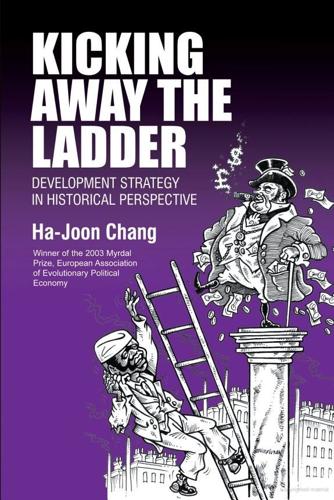
Kicking Awaythe Ladder
by
Ha-Joon Chang
Published 4 Sep 2000
The best known example is probably that of Enclosure in Britain, which violated existing communal property rights by enclosing common land, but contributed to the development of woollen industry by promoting sheep farming on the confiscated land. To turn to other instances, De Soto documents how the recognition of squatter rights in the violation of the rights of existing property owners was crucial in developing the American West. Upham cites the famous Sanderson case in 1868, where the Pennsylvania Supreme Court overrode the existing right of landowners to claim access to clean water in favour of the coal industry, which was one of the state's key industries at the time.49 Land reform in Japan, Korea and Taiwan after the Second World War violated the existing property rights of the landlords but contributed to the subsequent development of these countries.

Sunbelt Blues: The Failure of American Housing
by
Andrew Ross
Published 25 Oct 2021
“It’s not something I’m proud of,” he admits. “I’m told what to do by the owner, who lives far away, in Asia, and she doesn’t understand why people should live here for almost free.” The manager of a neighboring motel had started limiting guests to stays of seven days. “I don’t want them to have squatters’ rights,” he explains, referring to the legal misapprehension that has become a fixture on 192. While the federal and state moratoriums barred landlords from evicting most kinds of tenants, they had placed no such restraints on motel proprietors whose guests are hit by the same rent payment crunch. HOPE ON 192?

Memoirs of an Addicted Brain: A Neuroscientist Examines His Former Life on Drugs
by
Marc Lewis Phd
Published 5 Mar 2013
A modest community of tents was allowed to remain. Bands played while people worked to fix up the park. It was lovely! I didn’t know who was calling the shots, but People’s Park grew, through this infusion of political and communal idealism, into a beautiful place: a glorious manifestation of squatters’ rights. The university was not impressed. Talks and meetings were held. A compromise solution was sought. But it turned out that Reagan had been itching for a showdown with the freaks, weirdos, and communists of Berkeley, ever since the jewel of the University of California became a haven for political protest and free speech.

Whole Earth Discipline: An Ecopragmatist Manifesto
by
Stewart Brand
Published 15 Mar 2009
We can even invoke the Sierra Club, which pushed for nuclear power in the late 1960s and early 1970s as preferable to hydroelectric dams. They were right. • The atmosphere responds to the aggregate of all human activities. What the United States does about nuclear is not the main event. The squatters’ rights organization in South Africa, Abahlali baseMjondolo, has declared: “Electricity is not a luxury. It is a basic right. It is essential for children to do their homework; for safe cooking and heating; for people to charge phones, to be able to participate in the national debate through electronic communication (TV discussion programmes, email, etc); for lighting to keep women safe and, most of all, to stop the fires that terrorise us.”

Greater: Britain After the Storm
by
Penny Mordaunt
and
Chris Lewis
Published 19 May 2021
The people shape the buildings, and thereafter the buildings shape the people. So, Mother continues to function as a modern democracy despite, rather than because of, her neo-Gothic form. Scotland, Wales and Northern Ireland have their own assemblies and parliaments. England is the only one that hasn’t. (Although it does have squatters’ rights in the Commons chamber when English-only matters are being discussed and voted on. Then non-English MPs cannot take part.) The Houses of Parliament, while being a historical wonder, must be improved to facilitate democracy. Of course it is an iconic building, but the cost of antiquity is more than financial.
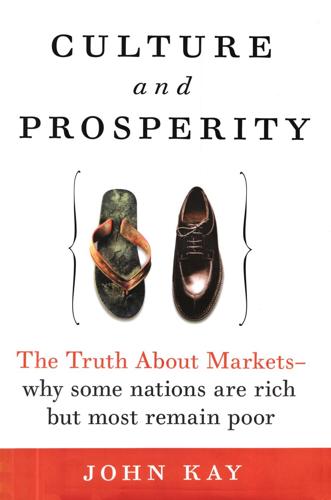
Culture and Prosperity: The Truth About Markets - Why Some Nations Are Rich but Most Remain Poor
by
John Kay
Published 24 May 2004
In the gold rushes-the largest were in California and Victoria, Australiagovernment was ineffective. A degree of spontaneous order, in which the mining communities regulated and enforced each other's claims, emerged rapidly. 14 These models influenced the general development ofland rights. In the end, settlers' claims-squatters' rights-were the principal determinant of property rights in English-speaking settlements, but not in English-speaking colonies or Spanish-speaking settlements. This difference had enduring consequences. Argentina and New Zealand ••••••••••••••••••••••••••••••••••••• Argentina and New Zealand are two of these countries of settlement-once rich, rich no longer.
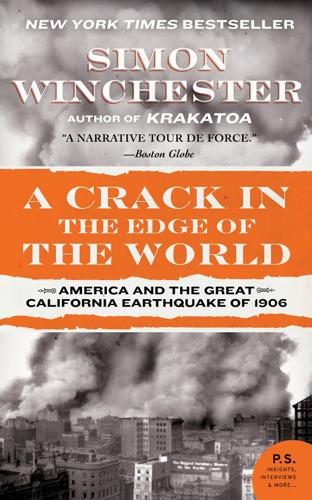
A Crack in the Edge of the World
by
Simon Winchester
Published 9 Oct 2006
In the 1870s there were said to be 45,000 Chinese crammed into their tiny oasis, or laager, or ghetto. A writer named B. E. Lloyd wrote that the side-walks are monopolized by them, with their little tables of fruits, nuts and cigars. The cobbler, tinner, chair-mender and jack-of-all-trades claim, by squatter right, a seat upon a box or a door-sill, where to ply their trades; the alleys, lanes and by-ways give forth dense clouds of smoke from the open fires, where cooking is performed, and the house-tops are white with drying garments, fluttering from the network of clothes-lines that are placed thereupon by enterprising laundrymen.
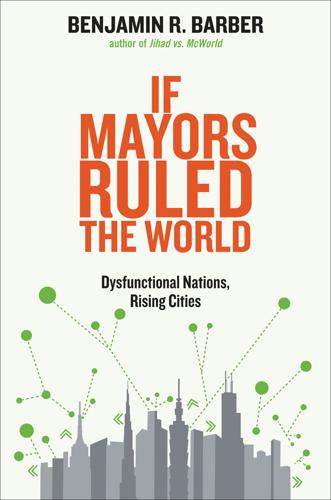
If Mayors Ruled the World: Dysfunctional Nations, Rising Cities
by
Benjamin R. Barber
Published 5 Nov 2013
De Soto has observed wryly that if the formal Egyptian economy was really the only recourse for twenty million educated young men without jobs, the country would have been swallowed up in permanent revolutionary struggle decades prior to the Arab Spring or suffered mass starvation on a Malthusian scale. As things stand, the informal economy prevents the poor from falling into the abyss without necessarily lifting them out of poverty. Advocates of microfinance, of legalizing squatters’ rights, of giving title to property users who are not owners, and of other policies aimed at formalizing the informal economy and bringing practices outside the law within the circle of legitimacy, have placed a bet, however. It is the informal economy that minimally keeps the poor from expiring, and if elaborated, formalized, and made legitimate, it can help overcome radical inequality and foster mobility—in time, greater civic integration as well.
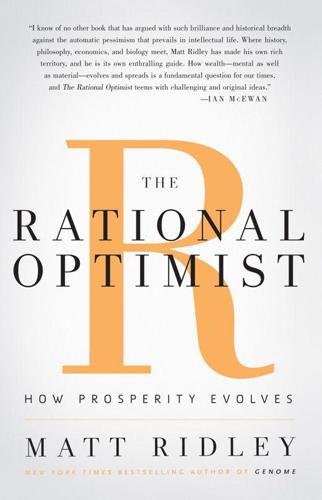
The Rational Optimist: How Prosperity Evolves
by
Matt Ridley
Published 17 May 2010
The Peruvian economist Hernando de Soto estimates that Africans own an astonishing $1 trillion in ‘dead capital’ – savings that cannot be used as collateral because they are invested in ill-documented property. He draws an instructive parallel with the young United States in the early nineteenth century, where the formal codified law was fighting a rearguard action against an increasingly chaotic confusion of informal squatters’ rights to property. More and more states were tolerating and even legalising pre-emption – ownership acquired by settling land and improving it. In the end it was the law that had to give, not the squatters – the law allowing itself to change by bottom-up evolution, not top-down planning. The retreat culminated in the Homestead Act of 1862, which formalised what had been happening for many years and signified ‘the end of a long, exhausting and bitter struggle between elitist law and a new order brought about by massive migration and the needs of an open and sustainable society’.

I'm Feeling Lucky: The Confessions of Google Employee Number 59
by
Douglas Edwards
Published 11 Jul 2011
The odor we added ourselves: a pungent mix of soiled jerseys, scuffed knee pads, muddy pucks and headless hockey sticks, grip tape adhesive, deodorant dispensers, ripped underwear, and expired aftershave. Google soon provided towel service and installed low-energy Swedish washing machines that took a week to spin through a single cycle—introducing a ripe finishing note of undone laundry, abandoned athletic socks, and mildewed terry cloth. Imagine a geek fraternity claiming squatters' rights in an insurance office. The one area in which hygiene was fastidiously maintained was engineering. Not the engineers' physical space—they were apparently all feral children—but their operating principles. Urs insisted on adopting the best practices he had seen in more industrial settings to things like source control and compiler warnings.
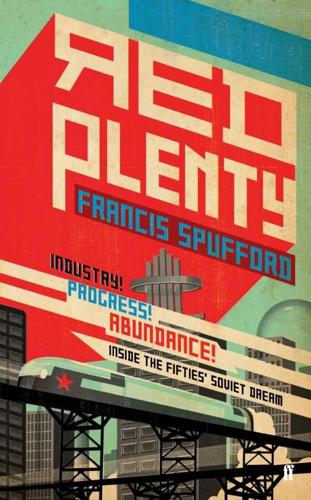
Red Plenty
by
Francis Spufford
Published 1 Jan 2007
If you were used to the casual beauty of the old capital, there was not much to get excited about in what she’d seen today. The flats were flats, no different from the blocks going up on muddy fields everywhere, and the institutes were standard lumps of public architecture, nondescript and undecorated. From close up, the wide grey frontage of Geology, where Cytology and Genetics had squatters’ rights till a building of its own should appear, resolved into wavering courses of mud-grey blocks, alternating with mud-grey tiles, as if a clay mound in the approximate shape of a scientific institute had been reared up from the earth by termites. The clumsy corridors inside ignored the scale of the human body.

The Last Spike: The Great Railway, 1881-1885
by
Pierre Berton
Published 1 Jan 1971
Traditionally, squatters in the North West had been protected on any land where they settled. Even when they were found to have squatted on lands reserved for the Hudson’s Bay Company, their rights were generally respected, the Company accepting equivalent land elsewhere. But after 1880, the government, in effect, did away with squatters’ rights where railway lands were concerned. Bona fide settlers who had arrived on the scene early, taken up land, and built homes found that they were given no special consideration. Arbitrary prices were placed on such parcels by the land officials not only in Regina but also elsewhere. This led to bitter recriminations against “the East,” the echoes of which lingered for decades.
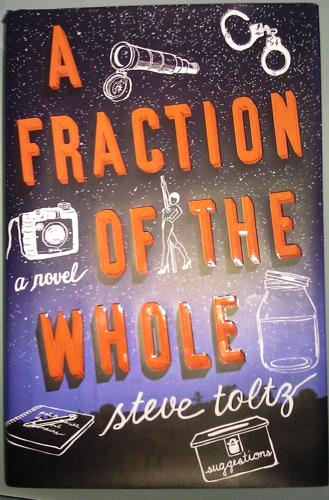
A Fraction of the Whole
by
Steve Toltz
Published 12 Feb 2008
I had been to several of Anouk's apartments, and she was always in the middle of throwing out a man who'd disgusted her, or washing the sheets because a man she'd been sleeping with had been with someone else, or waiting by the phone for a man to ring, or not answering the phone because a man was ringing. I remember one who refused to leave; he'd tried to invoke squatter's rights in her bedroom. In the end she got rid of him by throwing his mobile phone out the window, and he followed closely behind it. When I went in, Anouk was in her walk-in closet getting changed. "I'll be out in a minute." I snooped around. There was a photograph beside her bed of a man with a square head and dark sunglasses and the kind of sideburns that killed Elvis.

Frommer's New Mexico
by
Lesley S. King
Published 2 Jan 1999
The construction in 1916 of the Elephant Butte Dam near Hot Springs (now Truth or Consequences) brought irrigated farming back to a drought-ravaged southern New Mexico. Potash mining boomed in the southeast in the 1930s. Native Americans gained full citizenship in 1924, 2 years after the All Pueblo Council was formed to fight passage in Congress of a bill that would have given white squatters rights to Indian lands. And in 1934, tribes were accorded partial self-government. Hispanics, meanwhile, became the most powerful force in state politics and remain so today. The most dramatic development in 20th-century New Mexico was induced by World War II. In 1943, the U.S. government sealed off a tract of land on the Pajarito Plateau, west of Santa Fe, that previously had been an exclusive boys’ school.

Reaganland: America's Right Turn 1976-1980
by
Rick Perlstein
Published 17 Aug 2020
He claimed that Colombia stalled to get better terms, and, during that delay, “Panama saw its chance for freedom,” and approached the U.S. “We not only bought the Zone from Panama; we did something I believe was unique in the history of great nations in their dealings with smaller countries. We went into the Zone and we bought, in fee simple, all the privately owned land from the owners, including even homestead claims and squatters’ rights. I’ve seen the figure of those purchases set at $163 million.” (That was one of the facts Buckley corrected in his column: it was actually $4 million.) Reagan continued, thrillingly, “We built a sanitation system for their cities. We built bridges and highways and a water and power system.… We took a country which was a disease-infested, swampy jungle and gave it a death rate that was actually lower than the one we have in the United States.… The new nation began free of debt.… They had no fear of aggressive neighbors or of retaliation from Colombia because, at their request, the United States guaranteed their independence.”